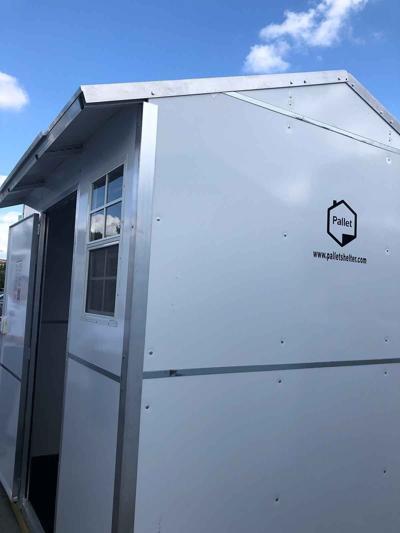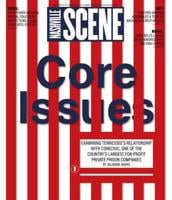
A set of long-unused COVID-19 quarantine housing pods could soon be repurposed as temporary housing options.
Metro issued a request for proposals (RFP) on May 28, and according to a press release, the city is seeking applications from nonprofits and community organizations to award up to 25 of the units (made by Washington-based Pallet Shelter) to be used as temporary housing.
Applicants must be able to prepare the shelter site, ensure code compliance, provide resident services and oversight, coordinate on-site support services and track and report shelter use — working with the Homeless Management Information Systems, Metro’s database for homelessness initiatives.
More than 100 units worth $1.2 million were never occupied
Metro will cover the cost of transporting the units, assembly, necessary repairs and applying thermal barriers. Each climate-controlled unit includes a bed, LED lighting, locking doors, fire extinguishers, smoke and carbon monoxide detectors and emergency exits.
Metro purchased 108 Pallet Shelter units for $1.2 million with funding from the Centers for Disease Control for quarantine and isolation during the COVID-19 pandemic.
District 12 Councilmember Erin Evans has been pushing for the pods to be repurposed since 2023, when Metro first passed a resolution to create an action plan for the units. In 2024, the Metro Codes Department and State Fire Marshal’s office approved the use of the shelters as temporary housing as long as they are placed 12 feet apart and include a thermal barrier.
“Eliminating the barriers to use our pallet shelters as a temporary housing option has been a collaborative effort across many Metro stakeholders including Metro Department of Public Health, Office of Homeless Services, Office of Emergency Management and Metro Codes,” Evans says in the release. “I appreciate Mayor O'Connell's support in offering these shelters to community organizations with this RFP."
Metro Codes Department, state Fire Marshal's Office approval opens 108 units to nonprofits for temporary housing
Metro says the shelters can offer a private space for people who cannot easily access group shelters due to pets, safety concerns or other barriers.
“These shelters are temporary housing solutions for our most vulnerable neighbors who need to be housed and connected with supportive services,” O’Connell says in the release. “I’m grateful for the work of the working group that has facilitated the repurposing of these shelters from infectious disease aids to temporary emergency housing options.”
Proposals are due to Metro by June 20.
This article was first published by our sister publication the Nashville Post.







